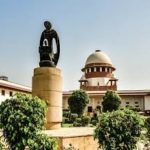Supreme Court of India judgment regarding the deaths of two students at IIT Delhi, which their families allege were murders linked to caste-based discrimination, not suicides as initially concluded by the police’s Section 174 CrPC inquiry. The court criticises the police’s failure to register a First Information Report (FIR) under Section 154 CrPC, emphasising that an FIR is mandatory when information discloses a cognizable offence, especially under the SC/ST (Prevention of Atrocities) Act, 1989, and that a preliminary inquiry is generally not permissible before registration. Beyond the immediate case, the judgment addresses the broader issue of student suicides in higher education, highlighting contributing factors like academic pressure, discrimination, and harassment. Consequently, the Supreme Court directs the registration of an FIR for the two deaths and establishes a National Task Force to formulate comprehensive guidelines for student mental health and suicide prevention across all Higher Educational Institutions.
(A) Criminal Procedure Code, 1973, Section 154, 174 – Suicide by a student – Registration of FIR – Prayer for – Whether the Police was justified in closing the matter upon conclusion of the inquiry under Section 174 of the CrPC without registration of an F.I. R.? – Appellant nos. 1 and 2 respectively in their complaint dated 09.09.2023, stated that the death of ‘A’ was not due to suicide, but was a result of murder based on caste hatred – They also informed the Police that ‘A’ was facing caste-based discrimination including the use of derogatory caste-based words by the members of the faculty – Offence alleged by the appellants in their respective complaints disclosed commission of cognizable offences – It is altogether a different thing to say that there is no element of truth in what has been alleged by the appellants in their respective complaints – It could just be a figment of their imagination – It could also be just a reflection of their anger towards the management as two young boys lost their lives – Held that even if the Police was of the view that there was no element of truth in what had been alleged by the appellants, it could have said so only after registering an F.I.R. and conducting an investigation pursuant thereto – Responsibility of maintaining the safety and well-being of students rests heavily on the administration of every educational institution – Therefore, in the event of any unfortunate incident, such as a suicide occurring on campus, it becomes their unequivocal duty to promptly lodge an F.I.R. with the appropriate authorities – Such action is not only a legal obligation but also a moral imperative to ensure transparency, accountability, and the pursuit of justice – Simultaneously, it is incumbent upon the police authorities to act with diligence and responsibility by registering the FIR without refusal or delay – This ensures that due process of law is upheld, and a thorough investigation can be conducted to uncover the truth and address any underlying causes – The harmonious discharge of these duties by both educational institutions and law enforcement agencies is essential to prevent the recurrence of such tragedies and to preserve trust in societal institutions – In a given case, failure on part of the administration of any educational institution may be viewed strictly – DCP (South-West District, New Delhi) directed to register the First Information Report in line with two respective complaints lodged in writing by the kith and kin of the two students who committed suicide and depute any responsible officer, not below the rank of Assistant Commissioner of Police, to undertake the investigation in accordance with law – Need not say anything further as investigation of any crime is within the domain of the police.
(Para 38 to 40, 47 and 48)
(B) Criminal Procedure Code, 1973, Section 154, 174 – Inquest proceedings – Registration of FIR – Held that inquest proceedings are concerned with discovering whether in a given case the death was accidental, suicidal, homicidal, or caused by an animal and in what manner or by what weapon or instrument the injuries on the body appear to have been inflicted, therefore, the evidence taken is very short – The investigations conducted under Sections 154 and 174 of the CrPC respectively are distinct in nature and purpose – A study of Chapter XII of the CrPC reveals that these two provisions cater to different procedural objectives – The former begins with information about the commission of a cognizable offence referred to in Section 154(1), culminating in registration of F.I.R. and ending with filing of a chargesheet/challan before the competent court under Section 173 or a final report as the case may be – In contrast, an investigation under Section 174 of the CrPC focuses on ascertaining the apparent cause of death in cases of unnatural or suspicious deaths – The investigation after registration of F.I.R. under Section 154 of the CrPC is an investigation into an offence – In contrast, the investigation under Section 174 of the CrPC is an investigation or an “inquiry” into the apparent cause of death.
(Para 22, 23, 24, 26 and 27)
(C) Criminal Procedure Code, 1973, Section 154 – Registration of FIR – Duty of Police – Held that when an informant approaches the police with information regarding the commission of a cognizable offence, the police owes a duty to promptly register an F.I.R. and initiate investigation in accordance with Section 154 of the CrPC – The police authorities are not vested with any discretion to conduct a preliminary inquiry to assess the credibility of the information before registering the F.I.R – Any such practice would be contrary to the established principles of criminal law.
(Para 34)
Amit Kumar & Ors. V. Union Of India & Ors.
Supreme Court: 2025 INSC 384: (DoJ 24-03-2025)






